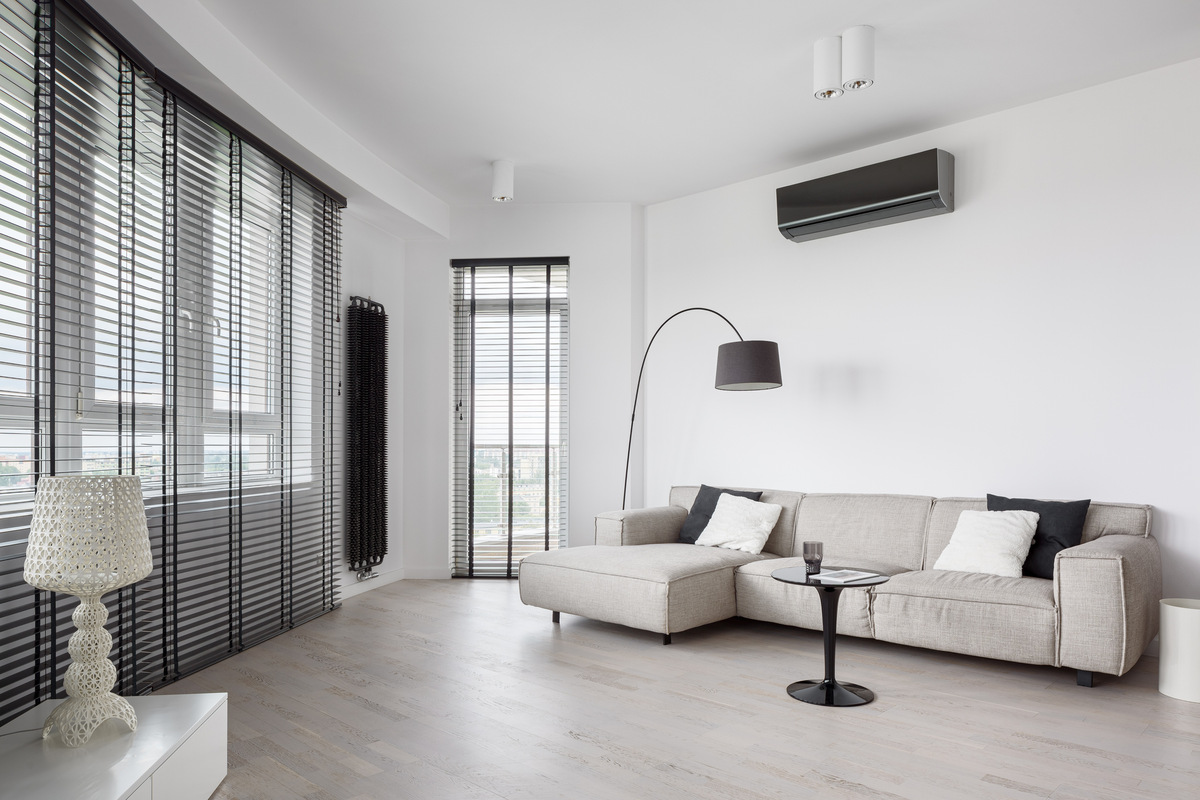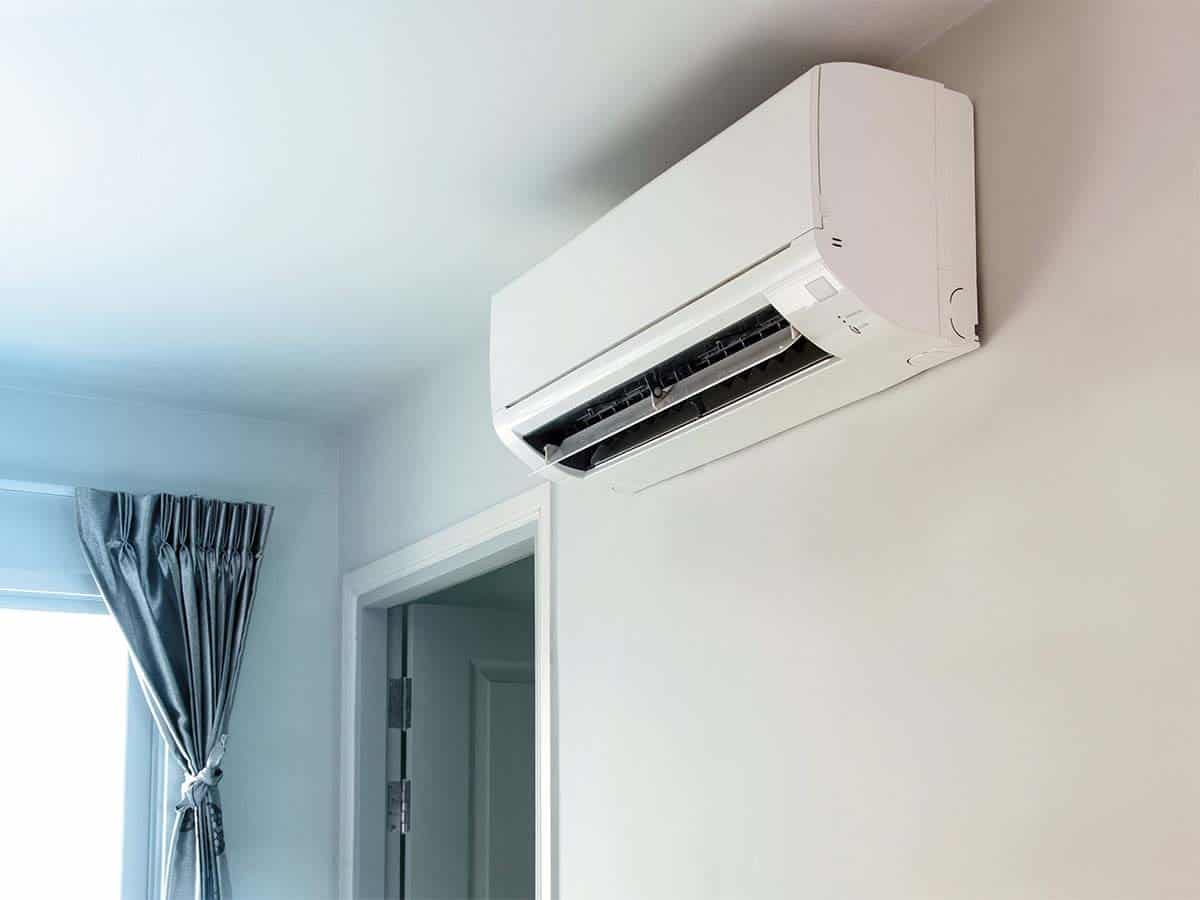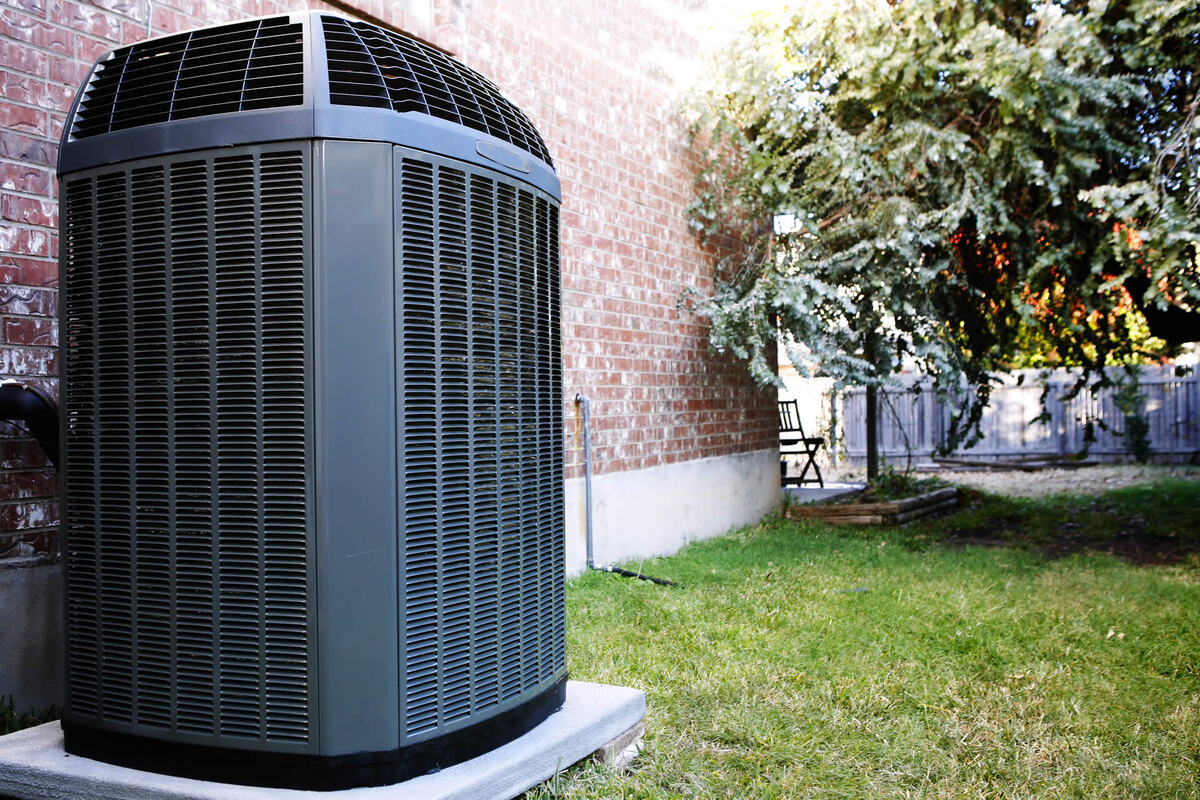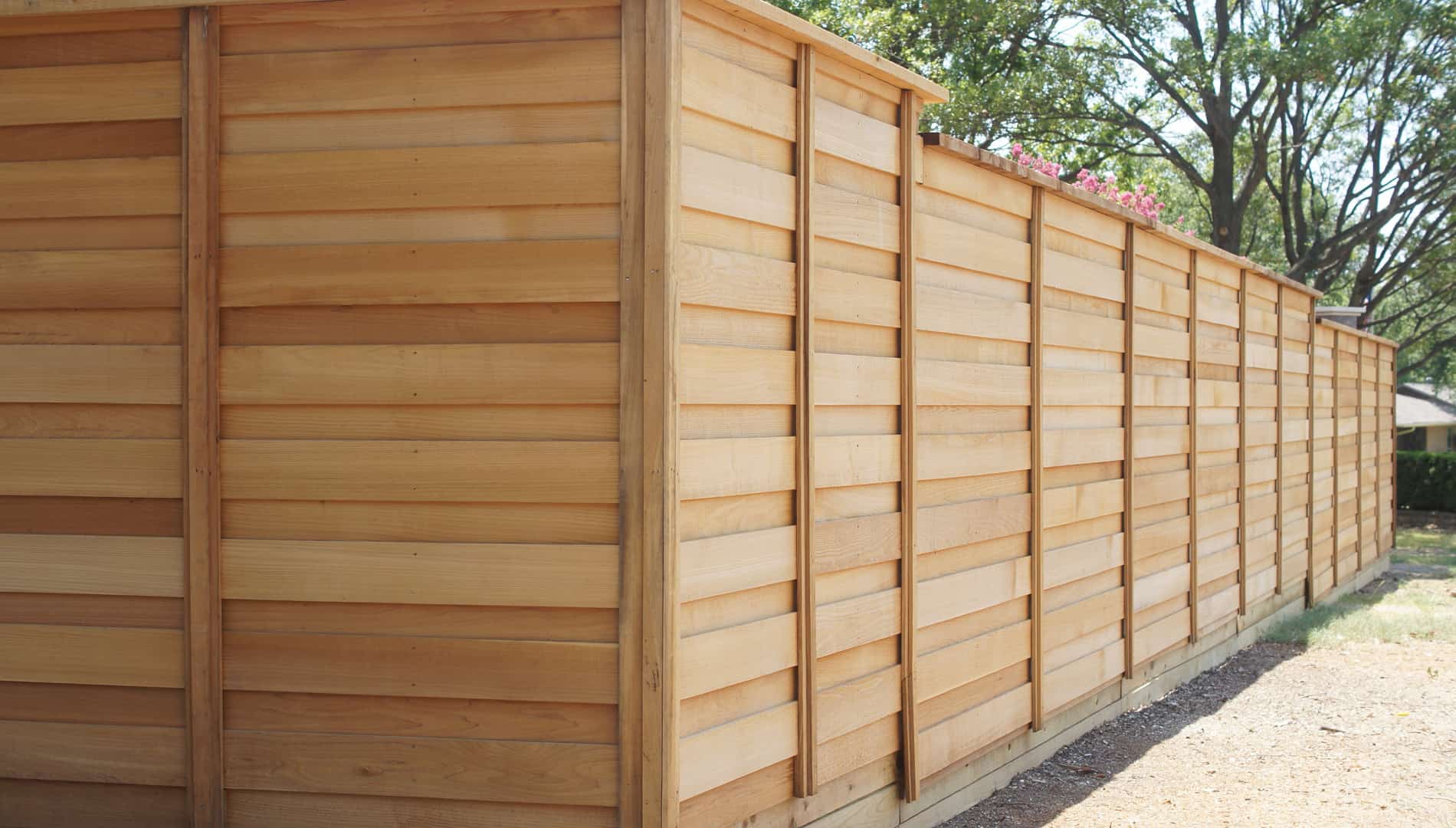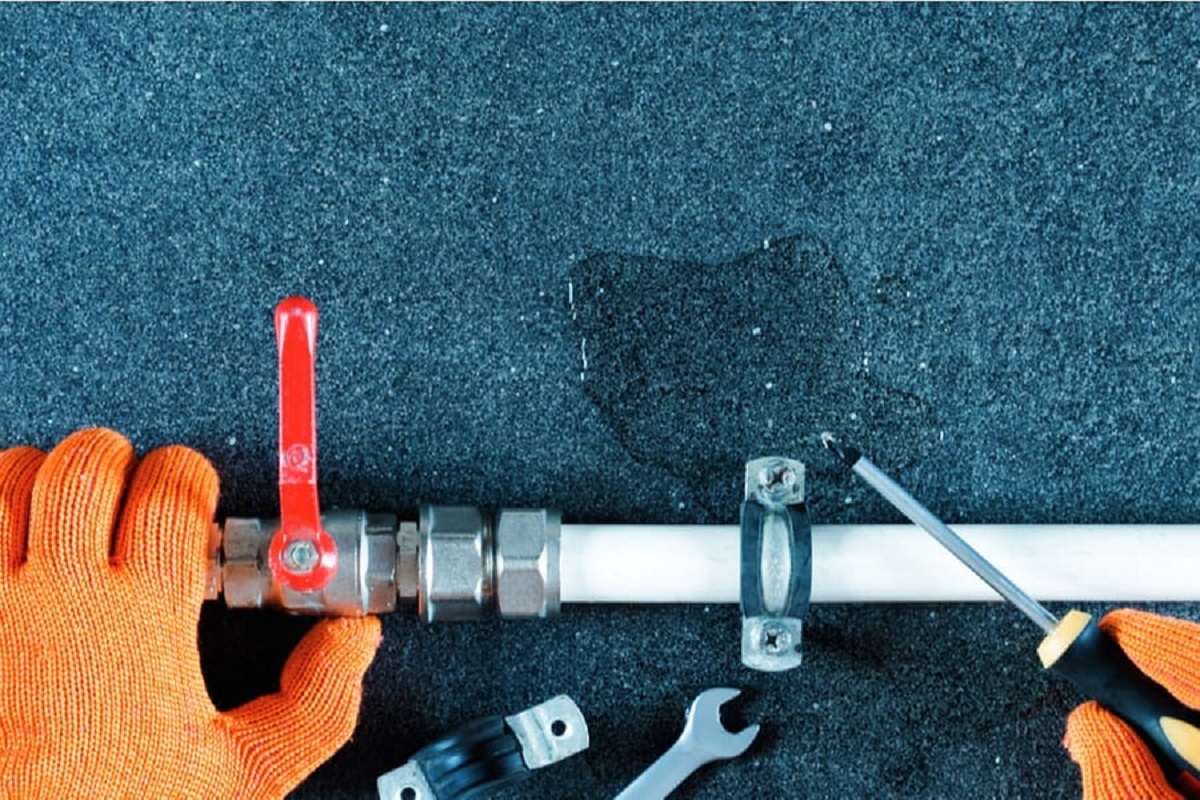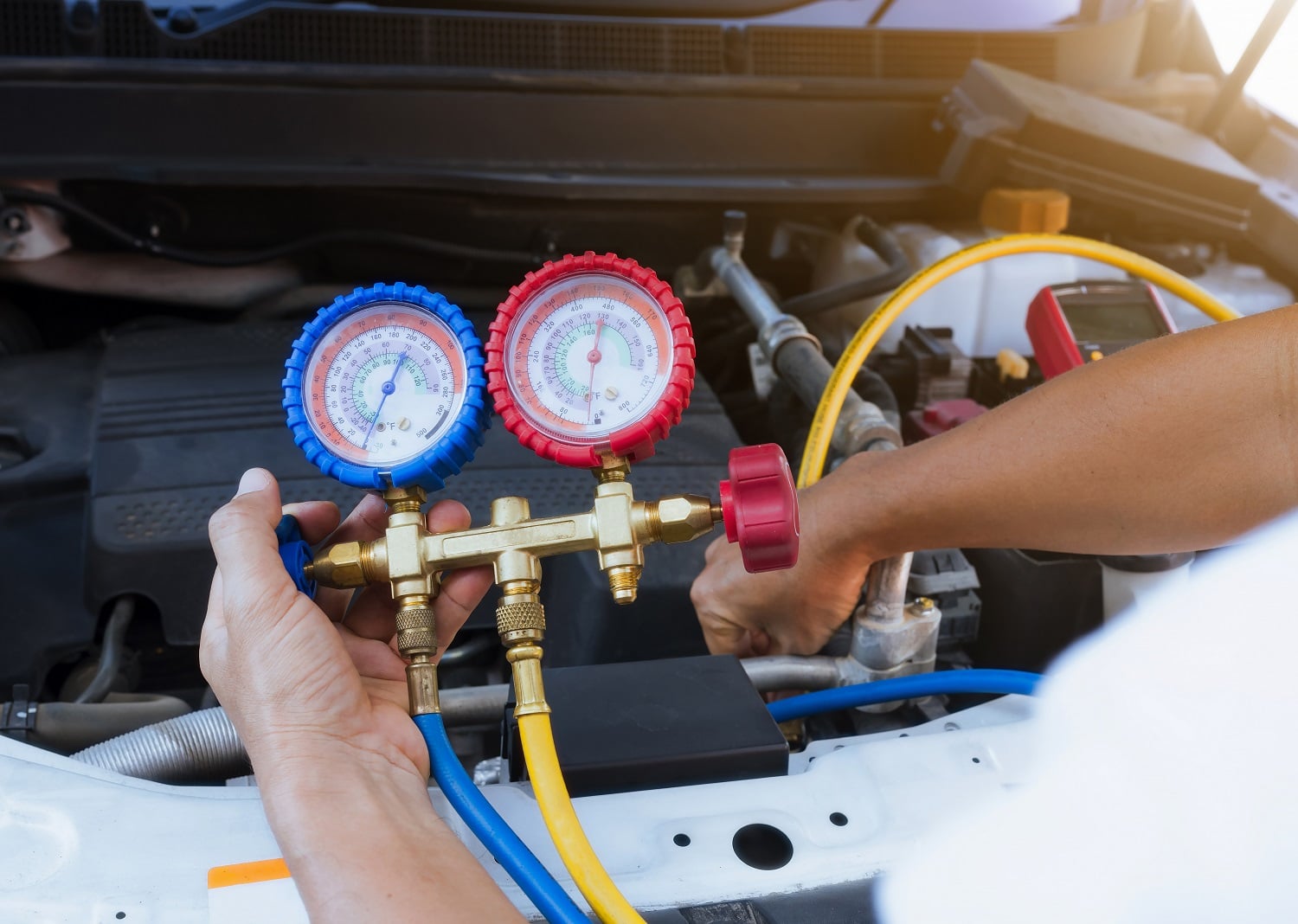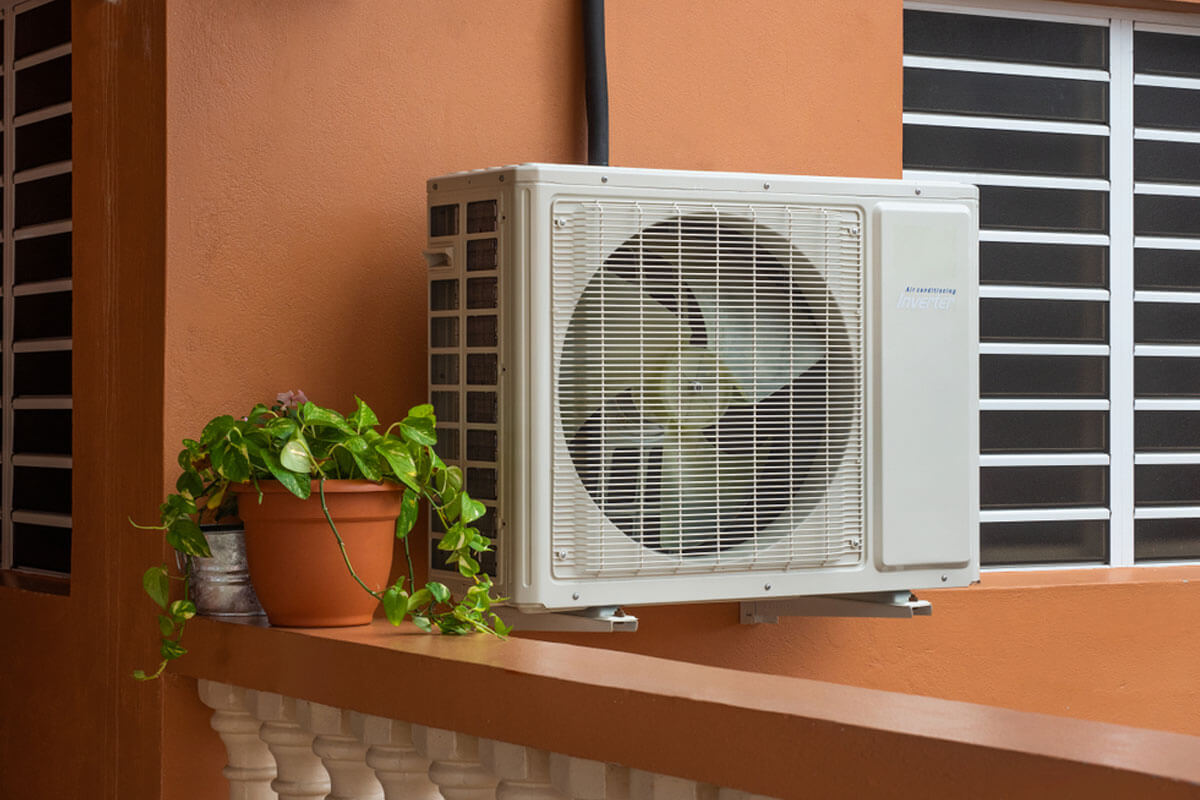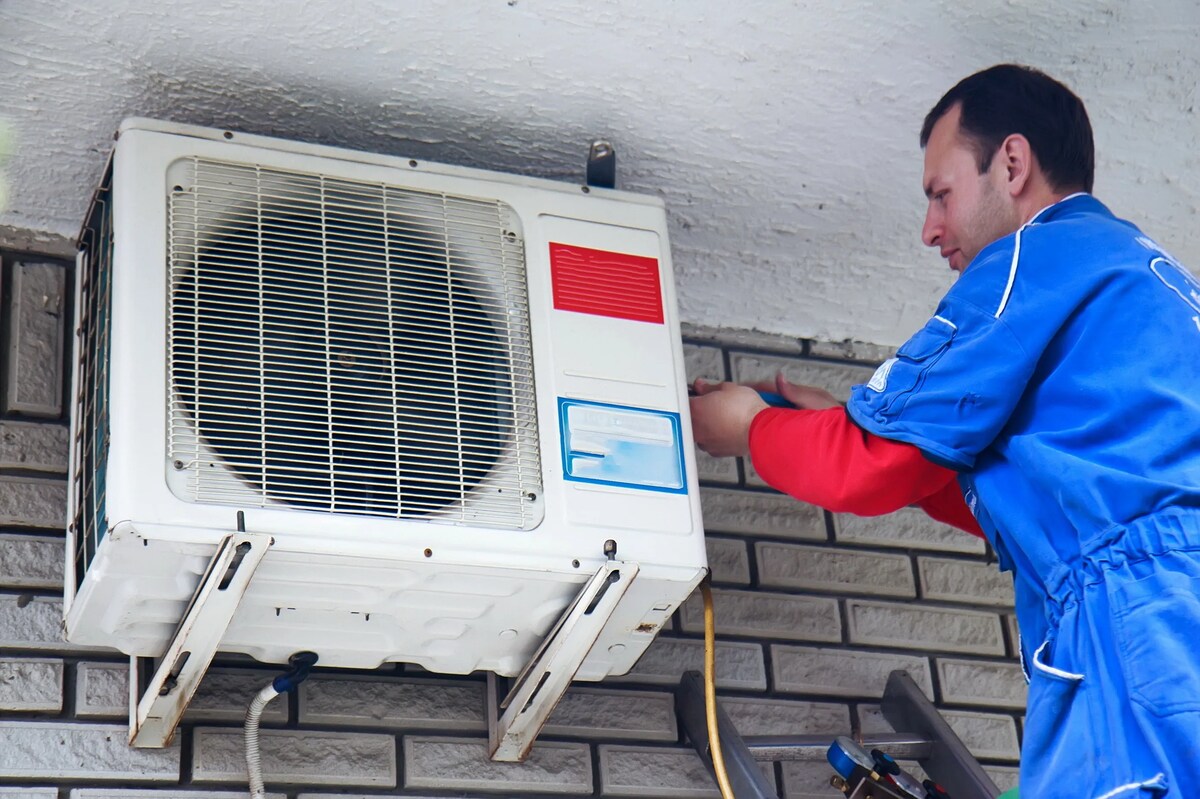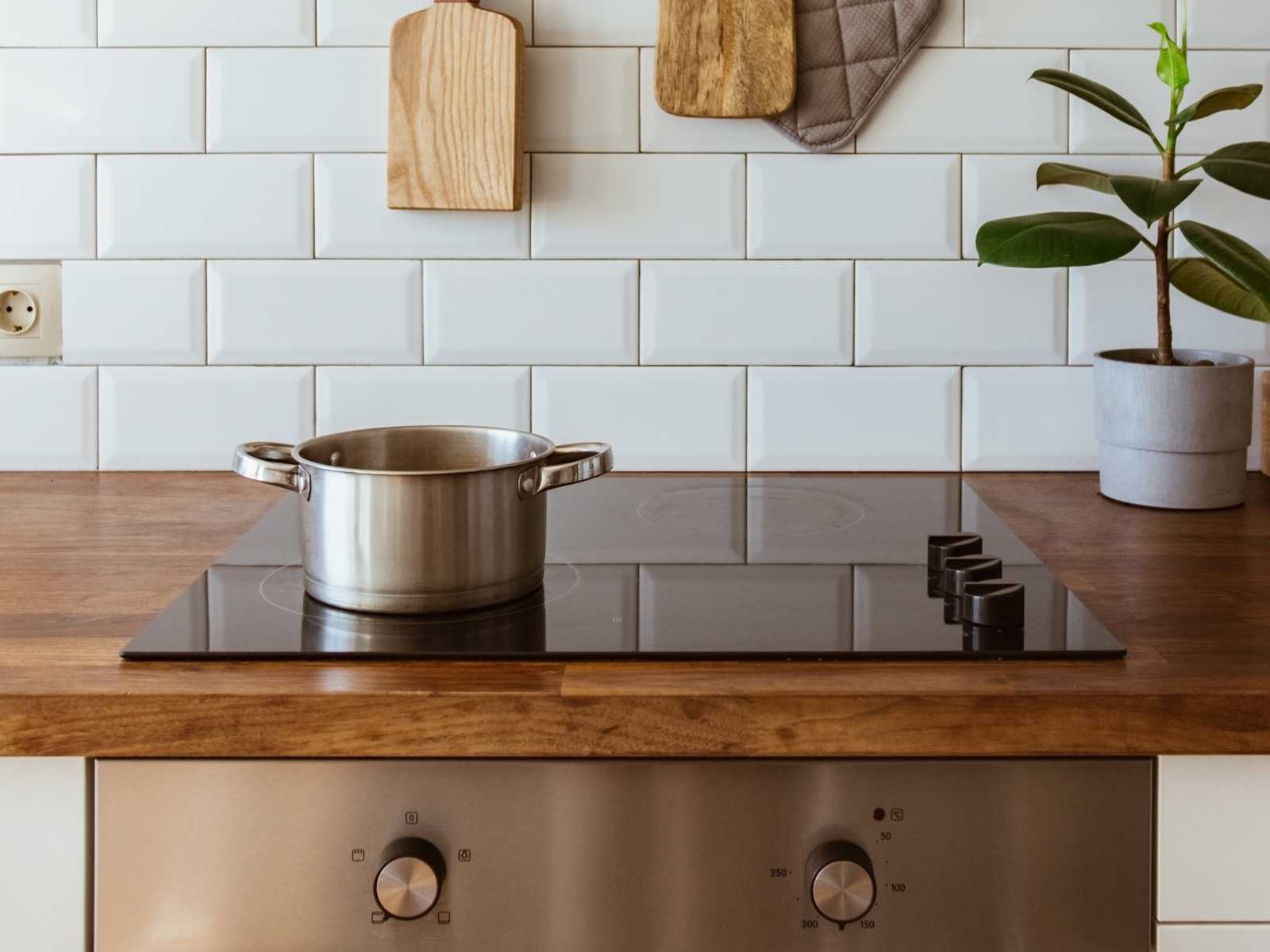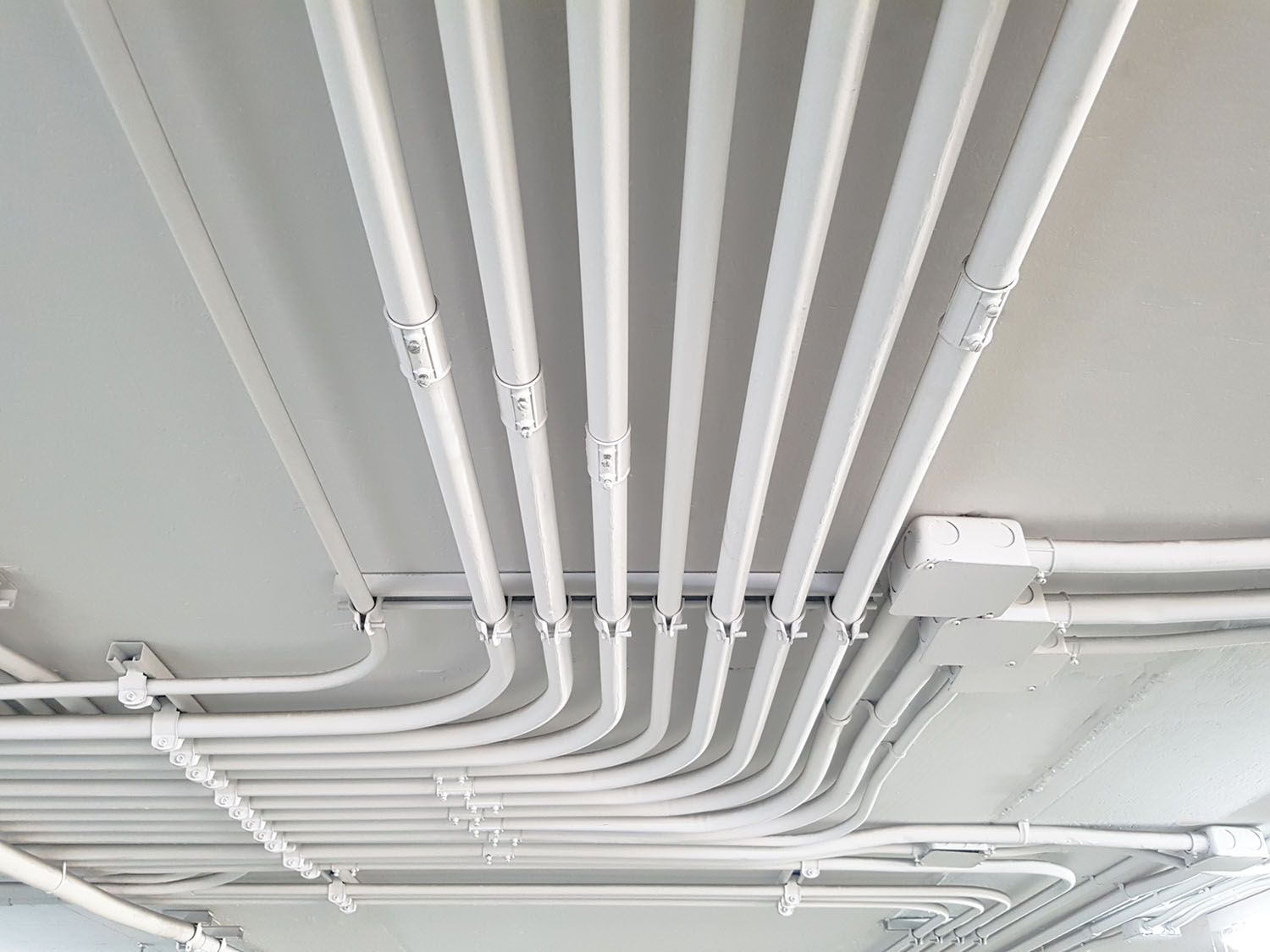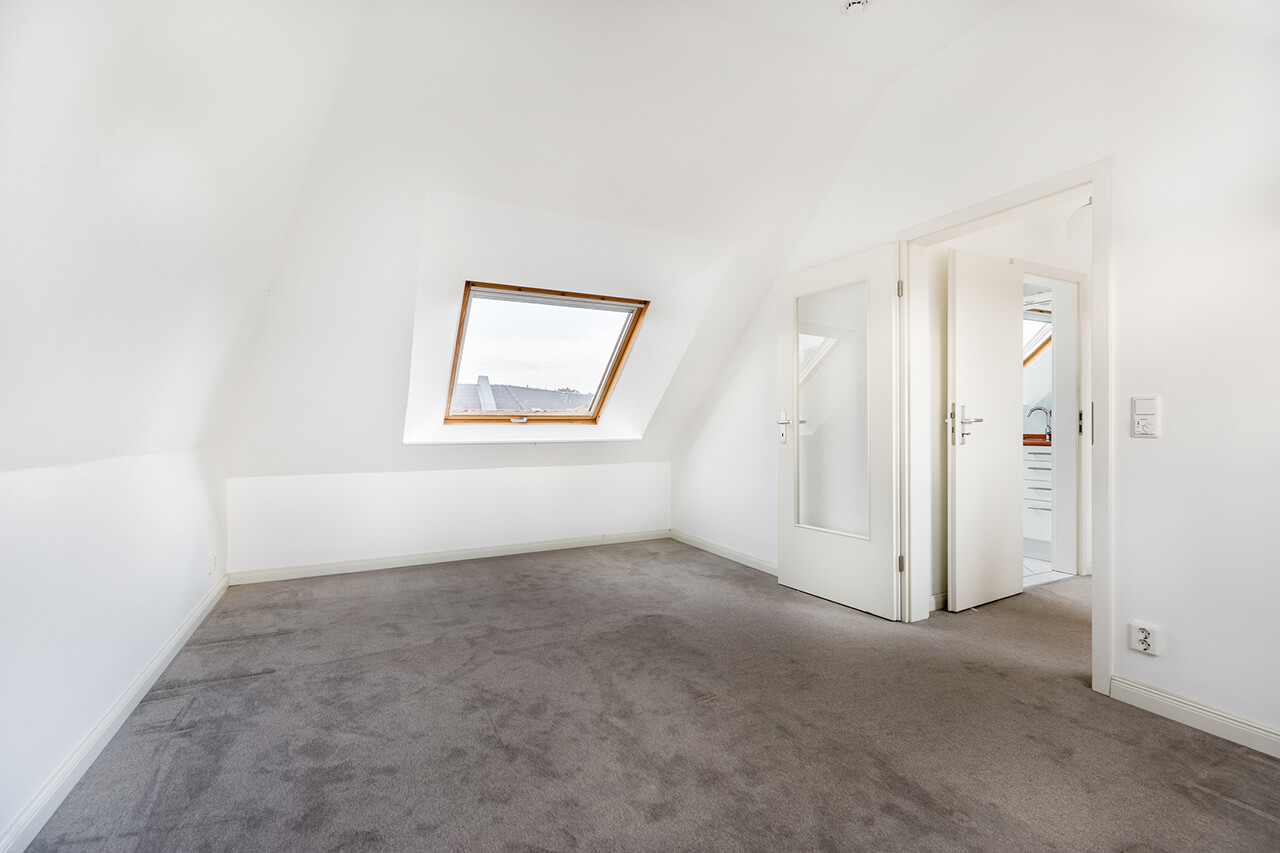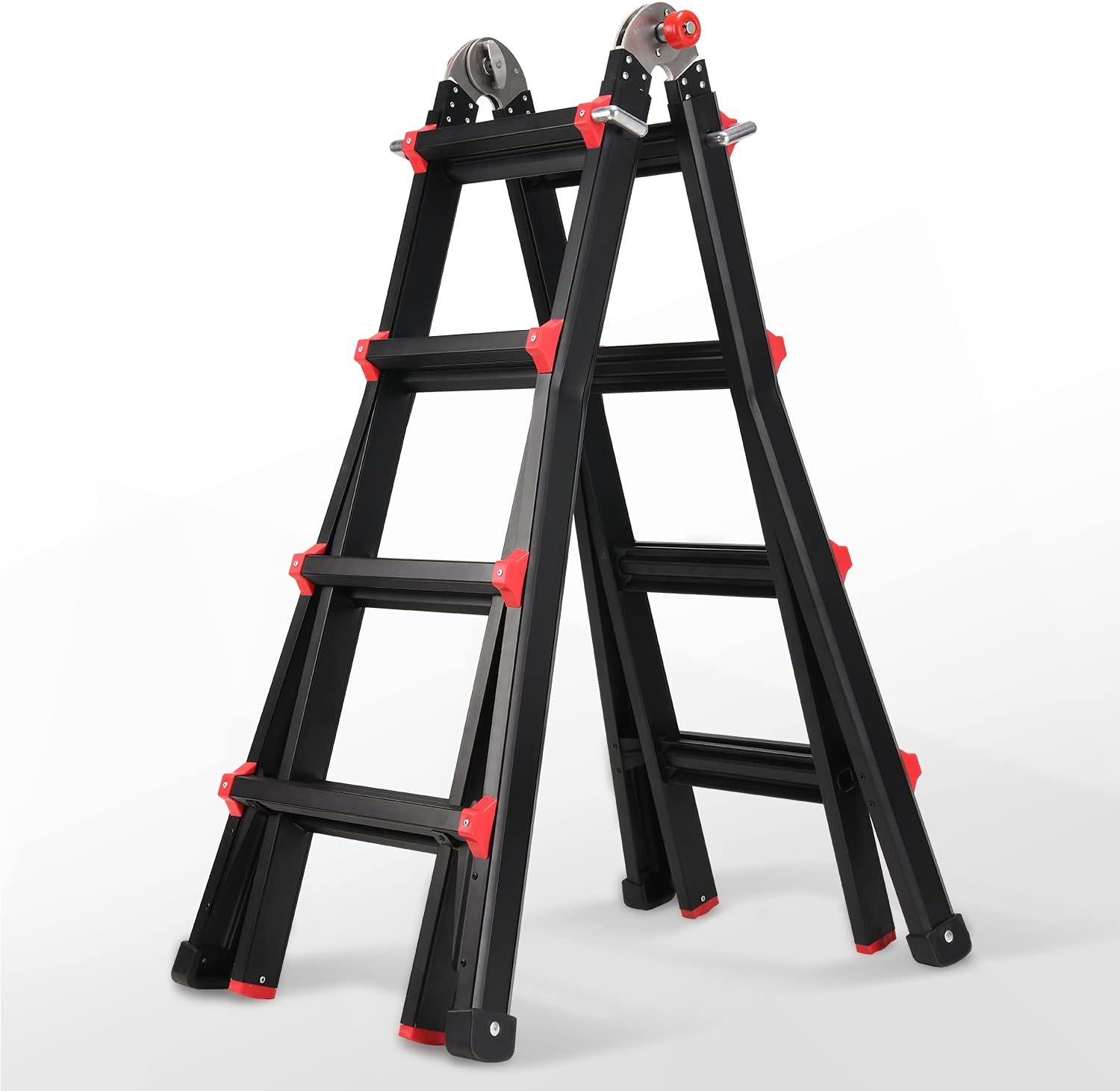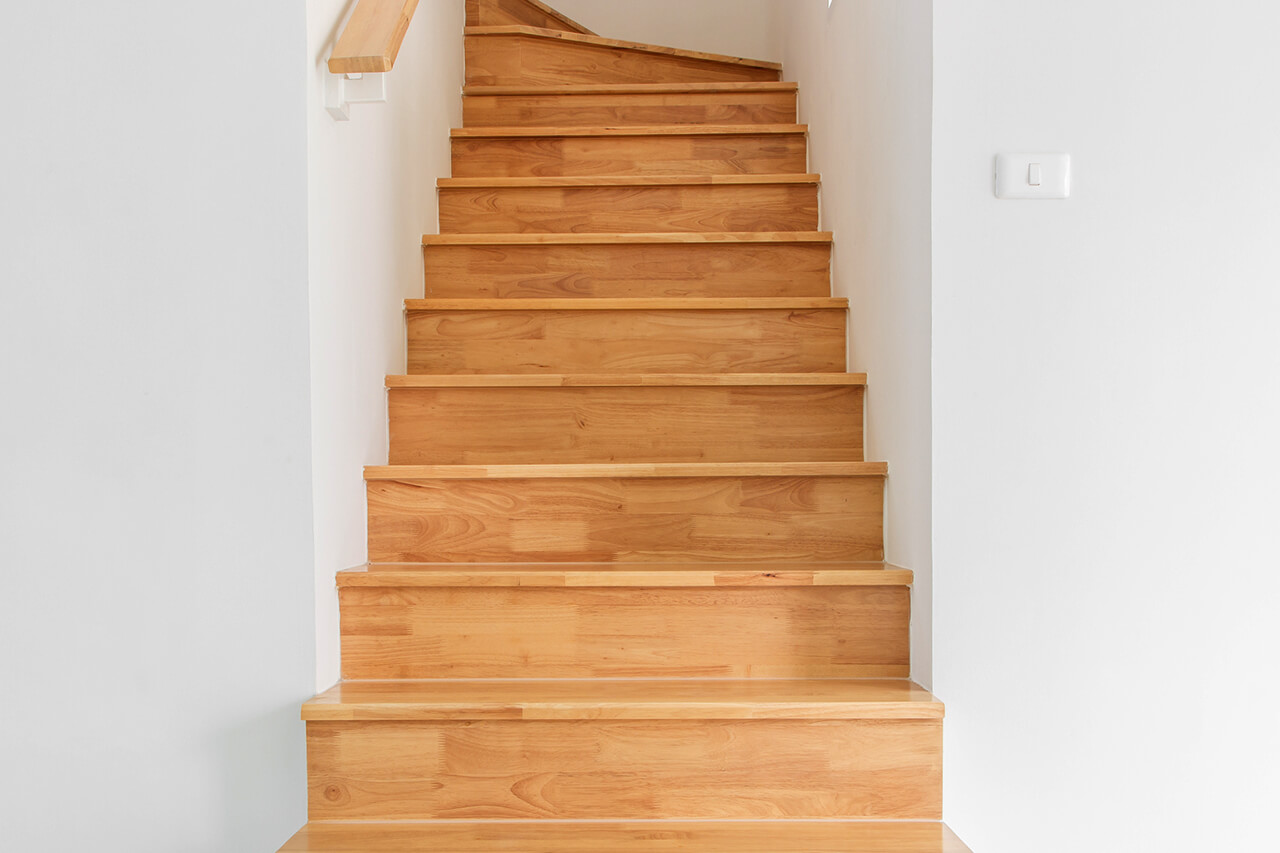Home>Home Maintenance>What Does It Cost To Install Air Conditioning
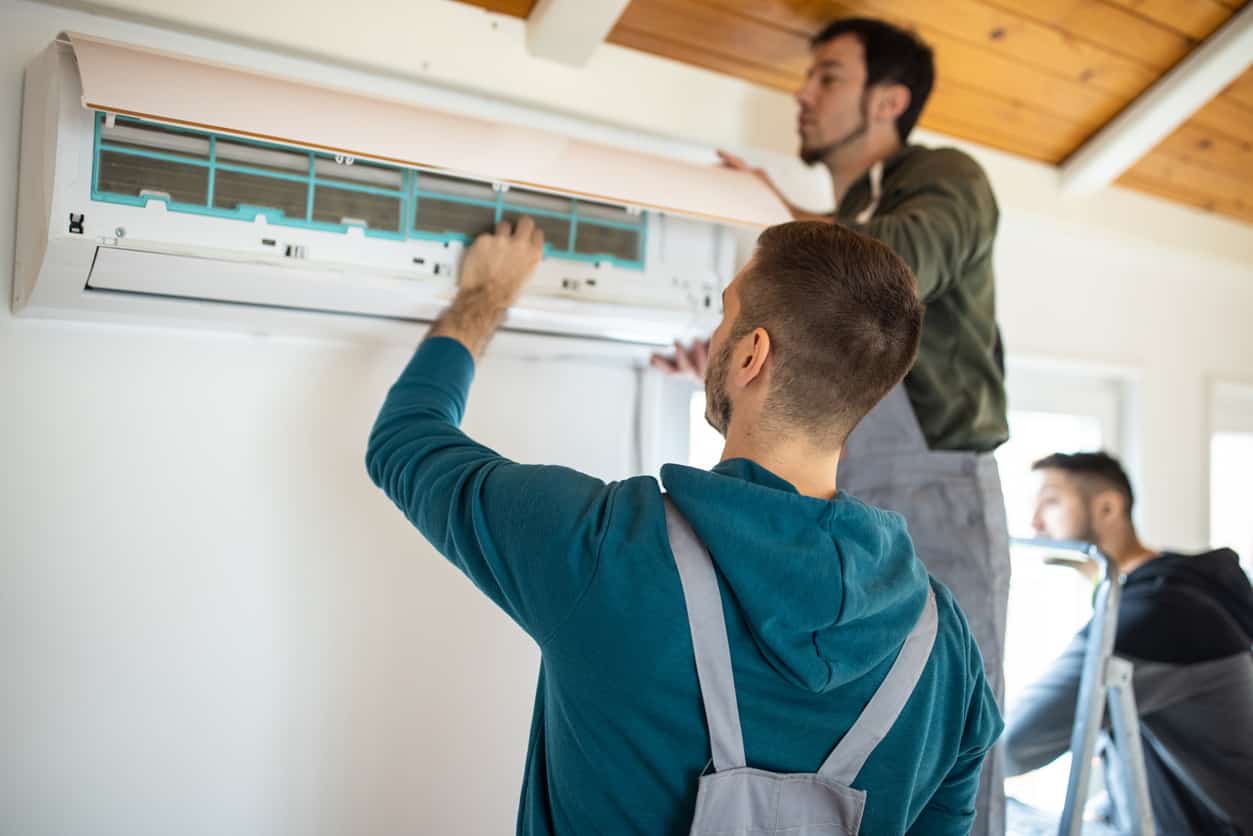

Home Maintenance
What Does It Cost To Install Air Conditioning
Modified: March 24, 2024
Find out the cost of installing air conditioning in your home with this comprehensive guide. Discover the expenses involved and make informed decisions for your home maintenance.
(Many of the links in this article redirect to a specific reviewed product. Your purchase of these products through affiliate links helps to generate commission for Storables.com, at no extra cost. Learn more)
Introduction
Installing an air conditioning system in your home can be a game-changer, especially during those hot summer months. Not only does it provide much-needed relief from the scorching heat, but it also helps maintain a comfortable and healthy indoor environment for you and your family.
However, before you can start enjoying the benefits of an air conditioning system, you need to consider the cost involved in the installation process. Understanding the factors that affect the overall cost will help you make an informed decision and budget accordingly.
In this article, we will delve into the various factors that impact the cost of air conditioning installation. From the cost of the unit itself to labor expenses, ductwork modifications, electrical work, and additional components, we will explore all the key aspects to provide you with a comprehensive understanding of the overall investment required.
It’s important to note that the cost of installing an air conditioning system can vary significantly based on several factors, including the size of your home, the type of system you choose, the complexity of the installation process, and your location. By considering these factors and understanding the associated costs, you can make an informed decision and select the best options for your needs and budget.
Let’s dive into the various factors that can influence the cost of air conditioning installation and explore each aspect in detail. By the end of this article, you will have a clear understanding of the financial commitment involved in installing an air conditioning system in your home and be well-prepared to make the right investment decision.
Key Takeaways:
- Installing an air conditioning system involves various costs, including the unit, labor, ductwork, electrical work, and additional components. Consider energy efficiency and maintenance for long-term savings and comfort.
- Factors such as system type, size, and location impact the cost of air conditioning installation. Consulting HVAC professionals and prioritizing maintenance can ensure a smooth and efficient cooling experience.
Factors Affecting the Cost of Air Conditioning Installation
Several factors can influence the cost of air conditioning installation. By understanding these factors, you can better estimate the overall investment required and make an informed decision. Here are the key factors that play a role in determining the cost:
- Type of System: The type of air conditioning system you choose will have a significant impact on the cost. There are various options available, such as central air conditioning, ductless mini-split systems, and window units. Each system has its pros and cons, and the cost can vary accordingly. Central air conditioning systems tend to be more expensive due to the complexity of the installation process.
- Size of the Unit: The size of the air conditioning unit needed is determined by the square footage of your home. Larger homes require larger units, which can increase the cost. It’s crucial to have a professional assess your home’s size and cooling needs to ensure you choose the right-sized unit.
- Energy Efficiency: Energy-efficient air conditioning systems may have a higher initial cost but can provide long-term savings on energy bills. Look for units with a high Seasonal Energy Efficiency Ratio (SEER) rating to ensure optimal energy efficiency and reduced operating costs.
- Ductwork Installation or Modifications: If your home doesn’t have existing ductwork, the installation or modification of ductwork can significantly impact the overall cost. Ductwork is essential for central air conditioning systems, and the complexity of the installation can vary depending on the layout of your home.
- Electrical Work: Air conditioning systems require proper electrical connections. If your home’s electrical system needs upgrading or modifications to accommodate the new unit, it can increase the installation cost. This includes wiring, circuit installation, and potential panel upgrades.
- Location: The cost of air conditioning installation can vary depending on the region you live in. Labor costs and materials may be higher in certain areas, which can impact the overall cost of the installation. It’s essential to consider the local market when budgeting for the project.
- Additional Components and Accessories: There may be additional components and accessories required for your air conditioning system, such as programmable thermostats, air purifiers, or zoning systems. These add-ons can increase the overall cost but can enhance the performance and efficiency of your system.
By considering these factors, you can get a better estimate of the overall cost of air conditioning installation. It’s important to consult with HVAC professionals who can assess your specific needs and provide you with accurate cost estimates based on your home’s requirements. Understanding these factors will help you make an informed decision and select the best air conditioning system that fits your budget and cooling needs.
Cost of the Air Conditioning Unit
The cost of the air conditioning unit itself is a significant factor in determining the overall price of installation. The price can vary depending on the type and brand of the unit you choose. Here are a few key factors to consider when evaluating the cost of the air conditioning unit:
- Type: Different types of air conditioning systems have varying costs. Central air conditioning systems tend to be more expensive compared to ductless mini-split systems or window units. The type of system you choose should align with your cooling needs and budget.
- Brand and Features: Air conditioning units from well-known and reputable brands may come at a higher price point due to their quality and reliability. Units with advanced features and technologies, such as smart thermostats or variable-speed compressors, can also increase the cost.
- Size and Capacity: The size and cooling capacity of the air conditioning unit play a vital role in determining the cost. Larger units that can cool larger spaces may come at a higher price. It’s important to ensure that the size of the unit aligns with your home’s square footage for optimal performance and energy efficiency.
- Energy Efficiency: Energy-efficient units tend to have a higher upfront cost but can provide long-term savings on energy bills. Look for units with a high Seasonal Energy Efficiency Ratio (SEER) rating, as they are more efficient and can help you save money in the long run.
It’s important to consider your specific cooling needs, budget, and long-term energy savings when selecting an air conditioning unit. Consulting with HVAC professionals can help you determine the right type and size of the unit for your home. Keep in mind that investing in a quality unit can provide better performance, durability, and energy efficiency, leading to cost savings over time.
In addition to the cost of the unit itself, it’s crucial to factor in the installation labor costs, as well as any additional components and accessories required for the system. By considering these factors holistically, you can get a more comprehensive understanding of the total investment required for air conditioning installation.
Installation Labor Costs
The labor costs associated with air conditioning installation can vary depending on several factors, including the complexity of the installation, the time required, and the experience of the HVAC professionals. It’s essential to have a clear understanding of labor costs to budget appropriately for your installation project. Here are a few key factors that can influence the installation labor costs:
- System Type: The type of air conditioning system you choose can impact the labor costs. Central air conditioning systems typically require more labor-intensive installation compared to ductless mini-split systems or window units. The intricacy of the ductwork and electrical work involved can contribute to higher labor costs.
- Existing Infrastructure: If your home already has existing ductwork and electrical connections that are compatible with the new system, the labor costs may be lower. However, if significant modifications or upgrades are required to accommodate the new unit, the labor costs can increase.
- Installation Time: The time required to install the unit can also affect the labor costs. Larger homes or complex installations may take longer, which can result in higher labor expenses. Additionally, if any unforeseen issues arise during the installation process, it may require more time and effort from the HVAC professionals, impacting the labor costs.
- Experience and Expertise: The experience and expertise of the HVAC professionals you hire can influence the labor costs. More experienced professionals may charge higher rates, but they can provide efficient and high-quality installation services. It’s important to choose licensed and reputable contractors who have a track record of successfully installing air conditioning systems.
When budgeting for installation labor costs, it’s recommended to obtain multiple quotes from different HVAC professionals. This will give you a better understanding of the average labor costs in your area and help you identify any significant discrepancies. However, keep in mind that the lowest quote isn’t always the best option. Consider the reputation, experience, and customer reviews of the professionals to make an informed decision.
It’s important to prioritize the quality of the installation to ensure optimal performance and longevity of your air conditioning system. While labor costs can be a significant portion of the overall expense, investing in experienced professionals can give you peace of mind and save you from potential issues or repairs down the line.
Ductwork Installation and Modifications
Ductwork installation and modifications are important aspects of air conditioning installation, particularly for central air conditioning systems that rely on ducts to distribute cool air throughout the home. The cost of ductwork installation and modifications can vary based on several factors, including the size of your home, the complexity of the ductwork system, and any existing infrastructure. Here’s what you need to know about ductwork installation and modifications:
- New Ductwork Installation: If your home doesn’t have existing ductwork or if the current duct system is outdated or in poor condition, new ductwork installation may be required. This involves the professional installation of ducts, vents, and registers to ensure optimal air circulation. The cost of new ductwork installation can be significant, as it requires careful planning, precise measurements, and skilled labor.
- Ductwork Modifications: In some cases, modifications to existing ductwork may be necessary to accommodate the new air conditioning system. This can include resizing or relocating ducts, sealing any leaks or gaps, and ensuring proper insulation. The cost of ductwork modifications will depend on the extent of the changes needed and the labor involved.
- Duct Cleaning and Sealing: Before installing a new air conditioning system, it’s often recommended to inspect and clean the existing ductwork. This helps improve the system’s efficiency and indoor air quality. Additionally, sealing any leaks or gaps in the ductwork can prevent air loss and improve overall performance. The cost of duct cleaning and sealing should be factored into your installation budget.
- Duct Efficiency: Efficient duct design is crucial for proper airflow and cooling throughout your home. Poorly designed or inefficient duct systems can result in uneven cooling, higher energy consumption, and decreased overall performance. Investing in well-designed ductwork can improve comfort, energy efficiency, and reduce long-term maintenance costs.
It’s important to consult with HVAC professionals to assess the condition of your existing ductwork and determine if any modifications or replacements are necessary. They can provide you with an accurate cost estimate based on the specific requirements of your home. Keep in mind that well-designed and properly installed ductwork is essential for the efficient operation of your air conditioning system. Investing in quality ductwork can lead to improved performance and energy savings in the long run.
By understanding the implications and costs associated with ductwork installation and modifications, you can ensure that your air conditioning system operates at its best, providing reliable and efficient cooling throughout your home.
Tip: When budgeting for air conditioning installation, consider the size of your home, the type of unit you want, and any additional ductwork or electrical work needed. Get multiple quotes to compare costs.
Electrical Work
Proper electrical work is essential during air conditioning installation to ensure the safe and efficient operation of the system. Depending on the specifics of your home and the new air conditioning unit, electrical work may be required. Here are some key aspects to consider regarding electrical work:
- Wiring and Connections: Your air conditioning system will require proper wiring and connections to the electrical panel of your home. This includes running electrical cables, installing dedicated circuits, and ensuring proper grounding. The complexity of this work can vary depending on the size of the unit and the proximity of the electrical panel to the installation location.
- Circuit Installation and Upgrades: Air conditioning systems often require dedicated circuits due to the high power demands. If your home’s electrical panel does not have enough available circuits or if the existing circuits are not suitable, additional circuit installation or upgrades may be necessary. This ensures that the new system operates safely and without overloading the electrical system.
- Panel Upgrades: In some cases, air conditioning installation may require an upgrade to your home’s electrical panel. This is especially true if the existing panel does not have enough capacity to accommodate the increased power demands of the new system. Upgrading the panel will ensure that your electrical system can safely handle the load of the air conditioning unit.
- Permits and Code Compliance: Electrical work associated with air conditioning installation may require permits from your local authority. These permits ensure that the electrical work is performed according to safety regulations and codes. The cost of permits should be factored into your overall budget.
It is crucial to hire a licensed electrician or HVAC professional with expertise in electrical work to perform the necessary installation tasks. Attempting electrical work without the proper knowledge and qualifications can lead to safety hazards and issues with your electrical system. A professional will ensure that the wiring and connections are done correctly and in compliance with local codes and regulations.
To budget for electrical work, consult with an electrician or HVAC professional who can assess your specific electrical needs and provide you with an accurate cost estimate. They will take into account the complexity of the electrical work required, any necessary circuit installations or panel upgrades, and any permits that need to be obtained.
Investing in proper electrical work ensures the safe and efficient operation of your air conditioning system. It is an essential aspect of the installation process that should not be overlooked for the well-being of both your cooling system and your home’s electrical infrastructure.
Additional Components and Accessories
When installing an air conditioning system, there are additional components and accessories that you may need to consider. These components can enhance the performance, efficiency, and comfort of your system. While they can increase the overall cost of installation, they often provide valuable benefits. Here are some key additional components and accessories to consider:
- Programmable Thermostats: Programmable thermostats allow you to set specific temperature schedules, saving energy by adjusting the temperature when you’re away from home or asleep. They can help optimize comfort and reduce energy costs over time.
- Air Purification Systems: Air purifiers, such as HEPA filters or UV germicidal lights, can improve indoor air quality by reducing airborne contaminants, allergens, and odors. These systems can be especially beneficial for people with allergies or respiratory issues.
- Zoning Systems: Zoning systems allow you to control the temperature in different areas or zones of your home independently. This can maximize comfort and energy efficiency by directing cool air only to the areas that need it, reducing energy waste.
- Smart Home Integration: Some air conditioning systems can integrate with smart home devices, such as voice-controlled assistants or smartphone apps, for easy control and monitoring. Smart integration can provide convenience and flexibility in managing your cooling system.
- Air Vents and Registers: Upgrading or replacing air vents and registers can improve airflow and distribution throughout your home. This ensures that cooled air reaches all areas efficiently, enhancing overall comfort.
When considering these additional components and accessories, it’s important to weigh the benefits against the cost. Some may have a higher upfront investment, but they can provide long-term savings through improved energy efficiency and increased indoor comfort. Discuss your specific needs and budget with HVAC professionals to determine which components and accessories are worth the investment for your home.
Keep in mind that not all additional components and accessories are necessary for every air conditioning system. The suitability and compatibility of these add-ons will depend on factors such as the type of system you choose and your specific requirements. Consulting with HVAC professionals will help ensure that the chosen components and accessories are compatible with your air conditioning system and provide the desired benefits.
By carefully considering these additional components and accessories, you can customize your air conditioning system to meet your specific needs and preferences. The investment in these extras can greatly enhance your overall cooling experience and contribute to a more comfortable and efficient home environment.
Permit and Inspection Fees
When installing an air conditioning system, it’s important to consider the permit and inspection fees associated with the project. These fees are typically required by local authorities to ensure that the installation meets safety regulations and codes. While the cost of permits and inspections varies depending on your location, they are important considerations when budgeting for air conditioning installation. Here’s what you need to know about permit and inspection fees:
- Permit Requirements: Many municipalities require permits for air conditioning installation. The purpose of these permits is to ensure that the installation is done in compliance with local building codes and safety regulations. The cost of permits can vary depending on the size and complexity of the installation project, and these fees should be factored into your budget.
- Inspections: Once the installation is complete, an inspection is typically required to ensure that the system has been installed correctly and is safe to operate. Inspections are conducted by local building inspectors or other authorized officials. The cost of inspections is usually included in the permit fees, but it’s essential to verify if any additional inspection fees apply in your area.
- Expertise and Compliance: Obtaining the necessary permits and passing inspections ensures that the air conditioning installation meets safety standards. It also provides peace of mind that the work has been done correctly and that the system operates safely. Hiring licensed professionals with expertise in air conditioning installation will help ensure compliance and increase the likelihood of passing inspections smoothly.
- Local Regulations: Permit and inspection requirements can vary from one municipality to another. It’s important to research and understand the specific regulations and procedures in your local area. Check with your local building department or consult with HVAC professionals to determine the permits and inspections required for your installation project.
While permit and inspection fees may add to the overall cost of air conditioning installation, they are essential for ensuring the safety and legality of the work. Failing to obtain permits and undergo inspections can result in fines, penalties, or even the need to redo the installation. It’s in your best interest to comply with local regulations and follow the proper procedures to protect your investment and the well-being of your home.
Work with HVAC professionals who have experience navigating the permit and inspection process. They can guide you through the necessary steps, assist with the paperwork, and ensure that the installation meets all requirements. This will help streamline the process and give you confidence in the quality and compliance of your air conditioning system.
Maintenance and Warranty
Maintenance and warranty are important factors to consider when installing an air conditioning system. Proper maintenance and a comprehensive warranty can help ensure the longevity and optimal performance of your system, as well as provide peace of mind. Here’s what you need to know about maintenance and warranty for your air conditioning system:
- Maintenance: Regular maintenance is essential to keep your air conditioning system running efficiently and to prevent potential issues. Maintenance tasks may include cleaning or replacing air filters, checking and cleaning the condenser and evaporator coils, inspecting electrical connections, and lubricating moving parts. It’s recommended to schedule annual maintenance with HVAC professionals to ensure that your system is in top shape.
- Benefits of Maintenance: Regular maintenance can prolong the lifespan of your air conditioning system, improve energy efficiency, and enhance indoor air quality. It can also help identify and address potential problems early on, avoiding costly repairs or breakdowns. By investing in routine maintenance, you can enjoy consistent cooling performance and lower long-term operating costs.
- Warranty Coverage: Understanding the warranty coverage for your air conditioning system is crucial. Warranties can vary depending on the brand and model, but they typically cover parts and labor for a specified period. Be sure to read the warranty terms and conditions to understand what is included and any requirements for maintaining the warranty coverage. Some manufacturers may require regular maintenance to uphold the warranty.
- Extended Warranty Options: Some manufacturers offer extended warranty options that can provide additional coverage beyond the standard warranty. These extended warranties can give you added protection and peace of mind, but they often come at an additional cost. Consider the benefits and costs of extended warranties to determine if they are worth the investment for your specific needs.
- Professional Maintenance versus DIY: While there are some maintenance tasks that you can do yourself, such as regularly cleaning or replacing filters, it’s recommended to have professional maintenance performed annually. HVAC professionals have the expertise and tools to thoroughly inspect and service your air conditioning system, ensuring optimal performance and identifying any potential issues.
When selecting an air conditioning system, consider the manufacturer’s warranty and the available maintenance options. Choose a reputable brand with a solid warranty and inquire about maintenance plans offered by HVAC professionals. Regular maintenance performed by professionals will not only uphold the warranty but also contribute to the long-term performance and reliability of your air conditioning system.
By prioritizing regular maintenance and understanding the warranty coverage, you can ensure that your air conditioning system operates efficiently and enjoy long-lasting cooling comfort in your home.
Read more: How Much Does Ducted Air Conditioning Cost
Conclusion
Installing an air conditioning system in your home is a significant investment that can provide comfort and improve your quality of life. However, it’s important to consider the various factors that can affect the overall cost of installation. By understanding these factors, you can make informed decisions and budget accordingly for your air conditioning project.
Factors such as the type of system, size of the unit, energy efficiency, ductwork installation or modifications, electrical work, and additional components should all be taken into account when estimating the cost. Additionally, permit and inspection fees, as well as maintenance and warranty considerations, should be factored in to ensure a smooth installation process and long-term performance.
Seeking the expertise of HVAC professionals is crucial for accurate cost estimates, proper installation, and ongoing maintenance. These professionals can assess your home’s specific needs, recommend the most suitable system, and ensure that the installation meets all safety and code requirements. Regular maintenance by professionals will also help keep your air conditioning system running efficiently and extend its lifespan.
While the cost of air conditioning installation can vary, it’s important to strike a balance between quality and budget. Investing in a reliable and energy-efficient system may come with a higher upfront cost but can provide long-term savings on energy bills and reduce the need for repairs. Additionally, understanding the warranty coverage and considering extended warranty options can enhance your peace of mind.
Ultimately, installing an air conditioning system is an investment in your home’s comfort and well-being. By considering the factors that affect cost, properly maintaining your system, and choosing reputable professionals, you can enjoy the benefits of a cool and comfortable home for years to come.
Frequently Asked Questions about What Does It Cost To Install Air Conditioning
Was this page helpful?
At Storables.com, we guarantee accurate and reliable information. Our content, validated by Expert Board Contributors, is crafted following stringent Editorial Policies. We're committed to providing you with well-researched, expert-backed insights for all your informational needs.
